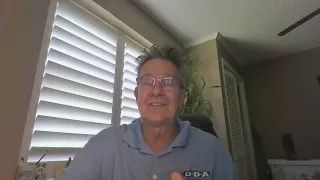You can purchase a home with no money down if your home has been severely damaged by the hurricane
Didier Malagies • October 28, 2024
Ask a Mortgage Question
Use the form below and we will give your our expert answers!
203H Ask A Question
Start Your Loan with DDA today
Your local Mortgage Broker
Mortgage Broker Largo See our Reviews
Looking for more details? Listen to our extended podcast!
Check out our other helpful videos to learn more about credit and residential mortgages.

When you're buying a home, it's not just about affording the purchase price or down payment. You’ve got closing costs, moving expenses, and all the “surprise” things that come up after you move in — like needing a new appliance, fixing a plumbing issue, or just furnishing the place. Keeping some cash reserves is smart. A good rule of thumb is to have at least 3-6 months of living expenses saved after the purchase, just in case life throws a curveball. Are you thinking about buying soon or just planning ahead? tune in and learn https://www.ddamortgage.com/blog didier malagies nmls#212566 dda mortgage nmls#324329

Wade Pfau, a leading voice in retirement income planning, has long advocated for the strategic use of reverse mortgages —and current market volatility could reignite interest in this often misunderstood tool. 🔁 Why Market Volatility Renews Reverse Mortgage Talks In times of market downturn, retirees face sequence of returns risk , meaning early losses can severely impact the longevity of their portfolio. Pfau suggests that reverse mortgages , particularly Home Equity Conversion Mortgages (HECMs) , can act as a buffer asset to avoid selling investments at a loss. Here's how: During market dips , retirees can pull funds from a reverse mortgage line of credit instead of their investment accounts. This gives their portfolios time to recover before resuming withdrawals. Result : More sustainable income and potentially greater long-term financial security. 🧠 Shift in Strategy: Not Just a Last Resort Pfau argues that reverse mortgages should be considered early in retirement planning , not just as a last-ditch effort: Opening a HECM line of credit early can grow over time due to the compounding credit line. Provides flexibility and tax-efficient access to funds. Helps retirees coordinate income sources between portfolio withdrawals, Social Security, and home equity. 👓 Changing Advisor Perspectives Financial advisors—previously skeptical—are beginning to see reverse mortgages in a new light: Volatile markets have prompted a more open-minded view among planners. More are incorporating reverse mortgages into holistic retirement income strategies . Bottom line : Market volatility doesn’t just threaten retirement—it also opens the door to rethinking traditional strategies . As Pfau puts it, home equity is too significant a resource to overlook, and when used wisely, reverse mortgages can enhance retirement resilience

Are you a salaried employee, hourly, self-employed, or a contractor? Do you receive bonuses, commissions, or overtime? How consistent is that income? Can you provide recent pay stubs, W-2s, or tax returns? Self-Employment (if applicable): How long have you been self-employed? Can you provide two years of business tax returns and profit/loss statements? 🔹 Funds to Close Questions Lenders want to confirm you have enough money to cover the down payment, closing costs, and reserves. Questions may include: Source of Funds: How much money do you have saved for the down payment and closing costs? Where are these funds coming from (savings, checking, retirement account, gift, etc.)? Are you receiving any gift funds? If so, from whom? Asset Documentation: Can you provide bank statements from the past 2–3 months? Are there any large or unusual deposits? Can you explain them? Reserves: Do you have additional savings left after closing (reserves)? Can you show evidence of other assets (stocks, bonds, retirement)? tune in and learn https://www.ddamortgage.com/blog didier malagies nmls#212566 dda mortgage nmls#324329


